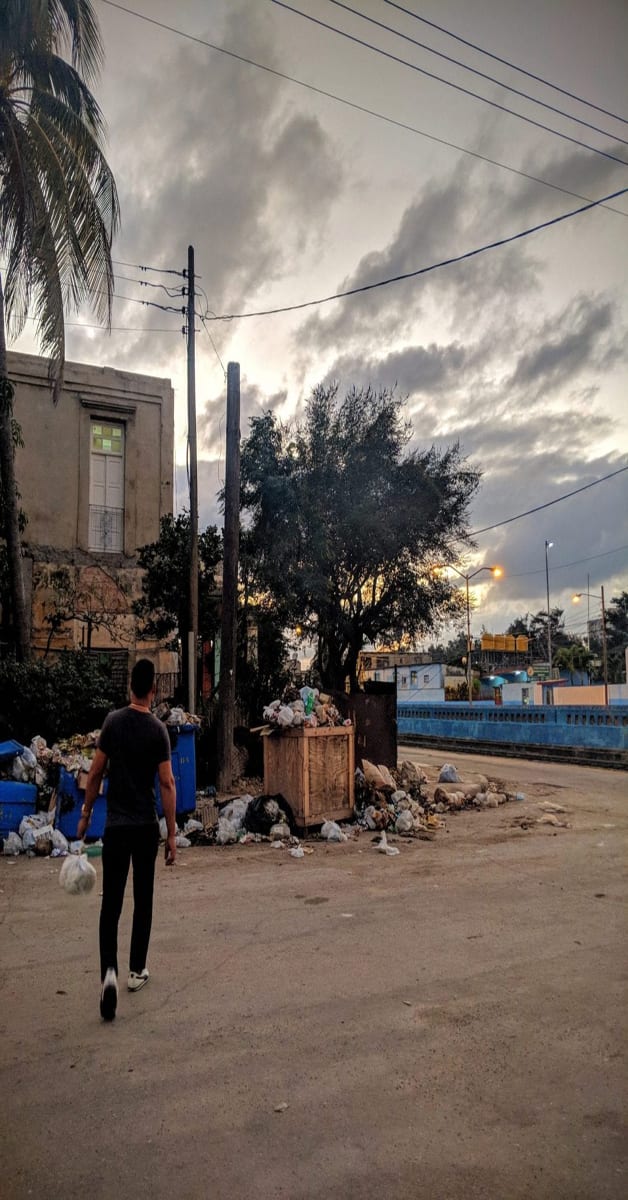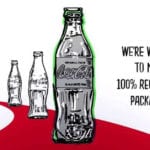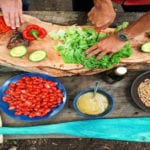The first in the Real Talk on Sustainable Living – an interview series on people who try to live sustainably in their own way. I interviewed Ayngelina Brogan who lives in Cuba to talk about how she and Cubans cope with waste and the lack of potable water. She also shares tips on how to be more sustainable despite uncontrollable circumstances where you live or work in.
Here is her Real Talk on dealing with waste and the drinking water crisis of Cuba:

1. Before Cuba, how did you deal with waste?
A: Growing up in Canada, I was still quite young when we brought in a recycling program and composting. We have a three bag system and the waste bag is clear so that it shows you aren’t throwing anything away that could be recycled or composted.
2. What do you think about single-use plastic?
A: I’m not a fan of plastic on the whole. I don’t like storing food in it or using it if I can find an alternative. Canada has amazing drinking water so I’ve never been a fan of drinking bottled.
3. In Cuba, what, if any, are the waste management policies?
A: As an island, dealing with the embargo and other restrictions. Waste is a constant issue. But I find how they deal with things to be very interesting.
Technically they have had recycling since 2011 but I’m not entirely sure how it works. In Havana every neighbourhood has a corner with big garbage bins where everyone takes their trash and there isn’t a separate bin for recycling.
4. What do people there do to their waste?
Nothing really gets thrown away in Cuba if it can be reused. And so single use plastic does not exist in theory. People will use it (for better or worse) many times. They will clean it to store oil, juice, and other liquids. People who make their own alcohol or yogurt sell it in previously used bottles. Basically anything that can be done with a plastic bottle will be done in Cuba.
You cannot find garbage bags in Cuba, everyone reuses their grocery bags. Even plastic take out containers, which are usually from tourist restaurants, are washed and reused.
Beer cans on the beach are almost always scavenged for use.
5. How did the Cuban waste issue become this issue?
A: As a whole Cubans don’t really think about the waste issue. As a matter of survival they need to reuse things as much as possible. Littering or waste is really a first world problem and they have more important things to think about.
You do see local artisans using reusing local beer cans and bottles to create glasses or purses because they know they are attractive to tourists.
6. How do commercial centers such as restos and malls cope with the lack of potable water?
A: Like many places that do not have potable water, you need to buy whatever you want to drink. There are no fountains or taps to drink from.
7. In your experience, what should they change in their system?
A: Most Cubans do not buy bottled water. They boil it at home and filter it through cheesecloth. They are not the ones creating the single use bottled water issue. It’s tourists.
I would love to see hotels and resorts provide their own in house water filtration systems so that tourists could just bring a reusable bottle.
It gets complicated with the embargo and this is a big expense for a hotel to take on. Tourists aren’t demanding it so they have no incentive to change. As travelers we must be vocal about it. There are currently luxury hotel chains that provide this service in other countries but not Cuba because we haven’t made it an issue.
8. What is LifeStraw? How did you find it? Where can others buy it?

A: LifeStraw is a refillable water bottle that filters water as you suck it through the straw. It’s like a Brita on steroids and does more than the average water filter.
I try to minimize my own plastic usage in Cuba so I’ve experimented with a Steripen and a Lifestraw. You can buy it on Amazon. I like the Lifestraw for trips that are a week or so but I drink 3L of water a day and drinking water out of a straw for weeks on end can be really cumbersome. I’m looking into other alternatives.
9. What are the best tips for drinking water in places with no potable water supply?
A: Be prepared with your own water filtration system. What I do like about Lifestraw is that it’s so easy. As long as water is clear I can pour from the tap into the bottle. If I’m able to drink the water from the straw that means it’s gone through filtration. It’s a bargain price considering how much we spend for bottled water.
10. Aside from minimizing plastic bottle use, what other sustainable habits do you practice in your life?
A: Cuba has taught me that it’s better to fix something than to buy new. Because there isn’t access to international stores or much shopping if a heel breaks I go see someone who can glue it. If my dress rips someone can sew it. In many ways being in a country where buying new isn’t an option has taught me that repairing makes more sense anyway.
About Ayngelina Brogan

Ayngelina went to Cuba and planned to spend a month there to write her guide to best Havana restaurants. She had no idea she’d be there two years and counting.





This website was… how do I say it? Relevant!! Finally I’ve found something that helped me. Thanks!